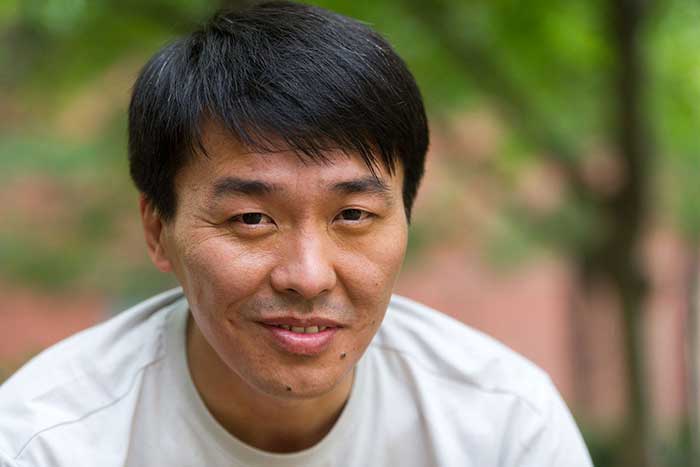Ahmed Nisar
Hundreds of languages are spoken in India, but there is no one national language. Instead, the constitution recognizes 22 languages with official status. Wikimedians in India are passionate about finding a home for each of these languages in Wikipedia.
That’s where academic Ahmed Nisar Syed comes in. As a contributor to Wikipedia in not one, but four languages—Urdu, Telugu, Hindi and English—Ahmed edits across articles covering religion, philosophy, geography, politics, languages, and science.
Ahmed celebrates the close connection between many languages and cultures in India, an intimacy reflected in the cooperation between Wiki projects in Hindi and Urdu. “I believe Hindi is incomplete without Urdu, and that Urdu is incomplete without Hindi,” he explains. “If you want to develop the Hindi Wikipedia, you must develop the Urdu Wikipedia and vice versa.”
Ahmed was born in Madanapalle, a small city in the southeastern state of Andhra Pradesh. Today, he lives and works in Pune, India. When Ahmed started editing Wikipedia, he was one of just two active Indian editors on Urdu Wikipedia. Today, he counts fourteen active editors in India and more in Pakistan.
In 2014, Ahmed was honored by his fellow editors for his extraordinary contributions to Telugu Wikipedia. The award, titled the Komarraju Lakshmana Rao Wikimedia Puraskaram, is named after Komarraju Lakshmana Rao, the first modern historian of the Telugu language.
The honor encouraged him to get more involved.
I believe Hindi is incomplete without Urdu, and that Urdu is incomplete without Hindi. If you want to develop one, you must also develop the other.
Ahmed has been part of outreach events for Wikipedia in both Telugu and Urdu languages across India. He has also developed an integrated plan for the promotion of Persian script-based Indic Wikipedias, such as Urdu.
As an academic, Ahmed keeps a keen eye on classical Urdu literature available in several highly respected libraries. “Talks are going on with few institutions [about the] digitization of their library books on Unani medicine,” he says. “I strongly believe that these kinds of projects will definitely help to do some better work.”
He hopes that other people will contribute to Wikipedia in their native language, so that Wikipedia can become a bridge between traditional cultures and modernity, preserving cultural heritage for generations of future knowledge seekers around the world.


